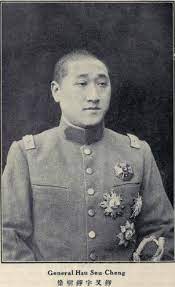Chang Chi-luan 張季鸾 Orig. Chang Ch'ih-chang 張熾章 Chang Chi-luan (20 March 1888-6 September 1941), editor of the leading newspaper Ta Kung Pao, was a pioneer advocate of freedom in reporting and in expressing editorial opinion in the Chinese press. Although Chang Chi-luan was born in Tsoup'ing hsien, Shantung province, his family's ancestral home was in […]











